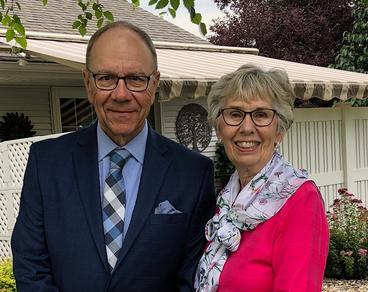
56 years separate today from the day Bill Pedersen graduated from the University of Minnesota’s Occupational Therapy program, a time when a full year’s tuition cost in the low hundreds of dollars.
In the five decades to follow, Bill’s OT training carried his career to the Hastings State Hospital, North Memorial Hospital(where he established its OT program), the Connecticut Mental Health Center, Yale University (where he graduated with a Master’s of Public Health), a psychiatry lecturer role at Yale, an assistant administrator at the Connecticut Mental Health Center, the administrator of a mental health program in Grand Rapids, MN, and the CEO at the St Peter Regional Treatment Center (then the largest public treatment facility in Minnesota devoted to forensic, mentally Ill and developmentally disabled patients).
The University of Minnesota’s Occupational Therapy program has always been a gateway for graduates to contribute to the well-being of others through many different paths. Some of its OT graduates devote their entire career to working directly with patients. Some transition to other health care disciplines. Some, like Bill Pederson, build upon both their OT education, and their meaningful engagement with patients, to lead an organization.
“I truly believe my clinical experience as an OT was a major asset in my future career,” he says. “The experience in the OT program at the University of Minnesota was the foundation for all that was to come.”
Retired, now, for nearly 20 years, Bill still views the study of occupational therapy as, most fundamentally, an essential discipline that teaches students to help others perform the day to day functions that are critical toward living their best lives. But access to this education has diminished since his day as a student, as costs to enroll have steadily risen.
The University of Minnesota’s OT program makes scholarships available to students to help offset their tuition and housing costs. Behind these and other financial resources is an alumnus like Bill Pederson, who donates regularly. He’s dedicated to helping students who are committed to practicing the field receive the outstanding education and overall experience that the program provides.
“I couldn’t say enough about contributing. Every little bit helps. Every little bit the department gets, they use. There are no bells or whistles,” he says. “We need to step up. These things won’t happen unless we do. There needs to be more than words.”
These many years after Bill graduated from the University of Minnesota and reached the height of his career, he feels a strong affinity for those who are just entering the program. “I still consider myself an OT,” he says. “I want to help in any little way I can.”